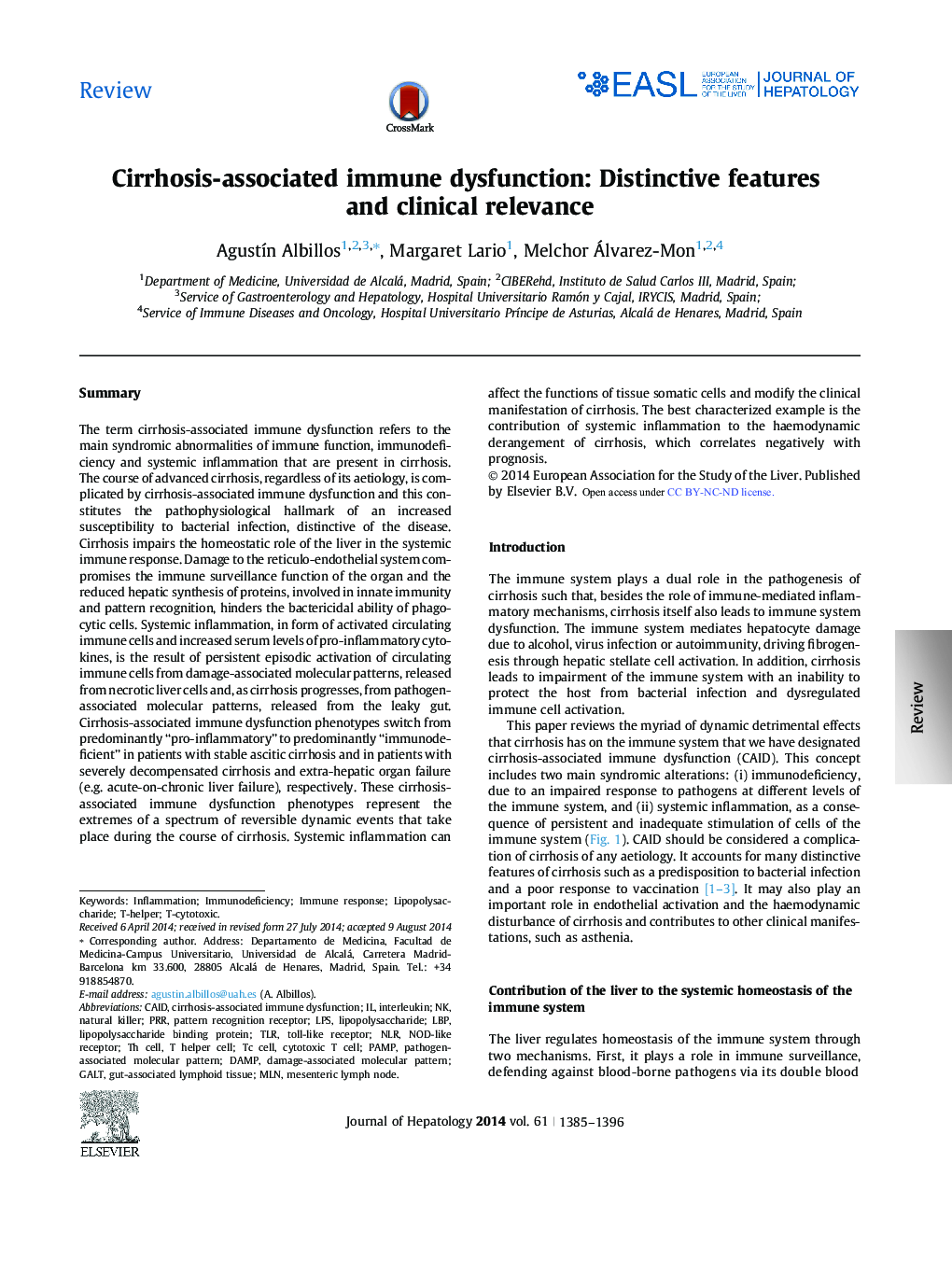| کد مقاله | کد نشریه | سال انتشار | مقاله انگلیسی | نسخه تمام متن |
|---|---|---|---|---|
| 6102383 | 1211115 | 2014 | 12 صفحه PDF | دانلود رایگان |
SummaryThe term cirrhosis-associated immune dysfunction refers to the main syndromic abnormalities of immune function, immunodeficiency and systemic inflammation that are present in cirrhosis. The course of advanced cirrhosis, regardless of its aetiology, is complicated by cirrhosis-associated immune dysfunction and this constitutes the pathophysiological hallmark of an increased susceptibility to bacterial infection, distinctive of the disease. Cirrhosis impairs the homeostatic role of the liver in the systemic immune response. Damage to the reticulo-endothelial system compromises the immune surveillance function of the organ and the reduced hepatic synthesis of proteins, involved in innate immunity and pattern recognition, hinders the bactericidal ability of phagocytic cells. Systemic inflammation, in form of activated circulating immune cells and increased serum levels of pro-inflammatory cytokines, is the result of persistent episodic activation of circulating immune cells from damage-associated molecular patterns, released from necrotic liver cells and, as cirrhosis progresses, from pathogen-associated molecular patterns, released from the leaky gut. Cirrhosis-associated immune dysfunction phenotypes switch from predominantly “pro-inflammatory” to predominantly “immunodeficient” in patients with stable ascitic cirrhosis and in patients with severely decompensated cirrhosis and extra-hepatic organ failure (e.g. acute-on-chronic liver failure), respectively. These cirrhosis-associated immune dysfunction phenotypes represent the extremes of a spectrum of reversible dynamic events that take place during the course of cirrhosis. Systemic inflammation can affect the functions of tissue somatic cells and modify the clinical manifestation of cirrhosis. The best characterized example is the contribution of systemic inflammation to the haemodynamic derangement of cirrhosis, which correlates negatively with prognosis.
Journal: Journal of Hepatology - Volume 61, Issue 6, December 2014, Pages 1385-1396
